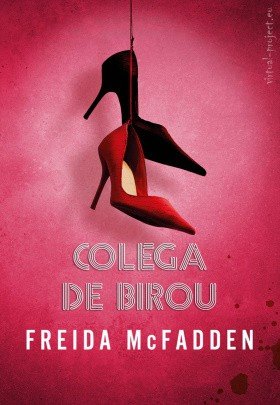“Because it’s not relevant,” Maya blurted.
“What? Tell me.”
She sighed. “Nothing. Just—come on, I’ll show you.”
Marty stayed with Stephanie to watch the bug quartet as Maya led me up the carpeted stairs, then up a short staircase to the world’s cleanest attic.
“I was going over Daddy’s finances when the will was in probate,” she said, “and…I was really shocked. I knew he didn’t have much, but I didn’t think he had debt. You know how careful he was.”
“Hersch thought a pack of ten razors from the 99-cent store was a rip-off.”
“Well,” she said, kneeling to pop open the black trunk with gold trim, “toward the end, his medical expenses started really racking up. I never heard a word about it. I figured Kaiser covered the chemo, but Daddy also took a trip to Texas to be diagnosed by some superspecialist. Kaiser didn’t cover that and the bill was insane, like thirty grand, not including airfare and hotel.”
“And we never heard about any of this?”
Maya scoffed. “You never heard about anything; you were off in la-la land trying to be the Jewish Stevie Wonder.”
I joined her on my knees as she started digging through the last of Uncle Herschel’s worldly possessions. It was all there—the life of a man, or what was left of it. His old trumpet case, his Real Book sheet music binder, a little framed baseball card—Duke Snider outfield Brooklyn Dodgers, two commemorative plates—Annie and Gone with the Wind, a stack of tax return folders dated by year, his engraved retirement clock from the DWP, some old letters and postcards, and a worn paperback copy of the King James Bible with the New Testament ripped out. He really was a funny guy in his way—almost too sentimental, yet oppositional to the core. The sight of a diary made my heart thump. I picked it up.
“Hersch kept a journal?”
“Naw,” Maya said with a half-groan. “That’s just a log of expenditures.”
I opened it—long lists of dates and amounts in small, meticulous handwriting. Band-aid cloth tape $2.99, Tums chewy $2.11, Jumbo Fair slippers $5.00.
I said, “Captain Coupon strikes again,” and Maya smiled, shook her head.
“What’s weird,” she said, digging in to pull out a rubber-banded brick of folded bank statements, “is that I never heard about all this debt. I mean, for one, I could have helped him.”
“That is odd.”
“And frail as he was, Daddy actually snuck away to Texas? Doesn’t that seem crazy to you?”
“It does—but what does that have to do with the Elkaims?”
“Two years before Daddy died, the debt disappeared—and I’m talking, like, a hundred grand, poof. That got me wondering, so I started taking a look at these. Well—”
“What.”
“Look.”
On the back pages of the bank statements in miniature faded xerox, check after check, all from Charles Elkaim—$5,000, $850, $1,200, $2,500, $15,000, and on and on.
“Elkaim just…like…paid his way?”
Maya nodded. “Till the bitter end.”
“So what are you saying?”
“I don’t know. He really did care about Daddy. And it’s nice that he reached out to you. But this is some scary business you’re getting into, and…”
“What?”
She slammed the trunk shut and there we were, kneeling like two children at their daddy’s coffin.
“I just hope this isn’t Charles Elkaim’s way of calling in a debt.”
 25
25
The next day after lunch, I picked up Endi and her blue acoustic at Ziva’s and together we drove to the Shalom Terrace. On the way, she was edgy, stiff as a board.
“You okay?” I said.
“I’m sorry,” she said, “I don’t know why I’m flipping out like this. I’m a nervous wreck.”
“You are going to be great. You’re going to put years on the lives of some of those old folks.”
“Yeah,” she said, “and take a few off my own.”
Still, she softened when she entered the place with its soft gray creatures drifting through long halls. Rabbi Peretz greeted us warmly and told us Charles Elkaim wasn’t back yet, but doctors said he was in much better shape. Then Jensen showed up and took us to the empty rec room. He set up mics, plugged in his guitar, and started looping a sweet hooky riff while Endi strummed along. Then they adjusted volumes, set up a music stand, and cracked open a songbook. Watching them practice, working their two-part harmonies, I wished for the zillionth time that I could sing better, but these two were pitch-perfect; the last thing they needed was my croony croak in the mix. Besides, I was busy holding down the first pangs of jealousy. It was early to be feeling all that, but I did.
At 2:00 p.m. on the dot, the doors flung open and the crowd shlepped in, some clomping on walkers, some rolling by wheelchair, some leaning on nurses. I took a seat between a man with no teeth and a woman with very little hair. Their excitement was childlike and infectious. As Jensen fumbled with the small PA system and karaoke TV screen, a husky old wiseacre snuck up on the mic uninvited, grabbed it, and said, “Introducing Mr. Jensen—a man with too much talent for this sorry place.”
The crowd grumbled, cheered, told the old guy to sit down.
“Actually,” Jensen said, half-laughing, putting an arm around the man, “Jensen’s my first name, and far as I’m concerned, this place…is my happy place.” Then he introduced today’s special guest, “the beautiful and talented Endi Sandell,” and she flashed a blushing smile as they kicked into their set, with the whole room belting out the karaoke hits: “Love Me Do,” “Blue Skies,” “My Favorite Things,” “What a Wonderful World,” “Stand By Me.”
I sang the oldies with the oldies, adding to the general disharmony. From inside this cacophony, though, each song took on a strange new power, a new context of life and death, and Jensen, as if knowing full well the emotional risks of the exchange taking place, did not let a moment of silence lapse—he cracked jokes, addressed the congregants by name, cheered them on, and then he thanked Endi, kissing her hand in a grand gesture before asking her to take five as he launched into a solo number, “All Shook Up,” with some fake Elvis moves that had the seniors clapping in almost-time and hooting and shaking the last of what they could shake.

























